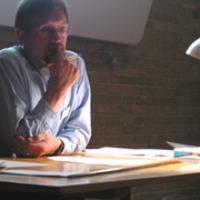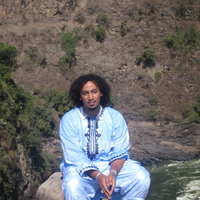
Michael A Milton
MICHAEL A. MILTON (Ph.D., University of Wales; D.Min., Erskine Theological Seminary; M.P.A., UNC Chapel Hill; M.Div., Knox Seminary; Post-doctoral Certification in Higher Education Teaching, Harvard University) is an American Presbyterian minister, educator, and composer. Milton retired from the US Army as a Chaplain (Colonel) after thirty-two years of service, including his initial Armed Forces service as a top-secret US Naval Intelligence linguist. A press release from McClean & Associates on additional biographical information is available at https://Michaelmilton.org/about.
Supervisors: Reverend Professor Canon William Price (History), University of Wales, Lampeter, Reverend Dr. Noel Gibbard (Historical Theology), Evangelical Theological College of Wales, Reverend Dr. R. J. Gore (Systematic Theology), Erskine Theological Seminary, and Dr. William C. Rivenbark, Professor of Public Administration, University of North Carolina at Chapel Hill
Supervisors: Reverend Professor Canon William Price (History), University of Wales, Lampeter, Reverend Dr. Noel Gibbard (Historical Theology), Evangelical Theological College of Wales, Reverend Dr. R. J. Gore (Systematic Theology), Erskine Theological Seminary, and Dr. William C. Rivenbark, Professor of Public Administration, University of North Carolina at Chapel Hill
less
Related Authors
Johannes Zachhuber
University of Oxford
Ian Young
Australian Catholic University
Joan Taylor
King's College London
Emmanuel R Goffi, PhD
University of Manitoba
Bob Jessop
Lancaster University
Alejandra B Osorio
Wellesley College
Oludamini Ogunnaike
University of Virginia
Nicholas Evans
University of Aberdeen
Marc Champagne
Kwantlen Polytechnic University
David Seamon
Kansas State University
InterestsView All (46)










Uploads
Papers by Michael A Milton
“What is the most effective ethical framework for the training of military personnel to fight and rest from war?”
The question posed, ostensibly, in the realm of normative and applied ethics, is (the author of the paper proposes) nested in meta-ethics and, specifically, ontology. The author’s response to the research question is a hypothesis, stated:
That, when human beings are assaulted by events (in the case of this paper, the Great War, 1914-1918) that ignite a cultural and individual phenomenological crisis, human beings express a frustration with philosophical skepticism and demand a transcendent ethical framework to answer the great existential questions;
Therefore, a meta-ethical position should be utilized in framing an applied ethic for teaching military service members.
Moving from the developments in the culture existential crisis in the First World War, citing primary source material from pre-war archival transcription of a report to Parliament by Edward Grey (1905-1916), the British Secretary of State for Foreign Affairs, with post-war primary sources from Post-War ethicist Max Carl Otto (1876-1968), the author uses a qualitative historical sample of postbellum literature (1918-1939), notably the poem, “In Flanders Field (1915),” and T.S. Eliot’s, “The Hollow Men (1925)” to express a Western existential frustration with artifacts of philosophical skepticism. The author suggests an application (here, then, “applied ethics”) for teaching a “Mother’s Knee ethic” that draws on the “warranted proper function” of Alvin Carl Plantinga (1932 -), and the meta-ethical sample, the Army Ethic White Paper (11 July 2014), and taught with a pedagogy well-known within the Armed Forces Chaplaincy community: cooperation without compromise. The paper concludes by a call for further inquiry, utilizing quantitative research methods, on the effect of an applied pedagogy built on the proposed enacting of the, constructed but mostly idle, metaphysical ethical framework.